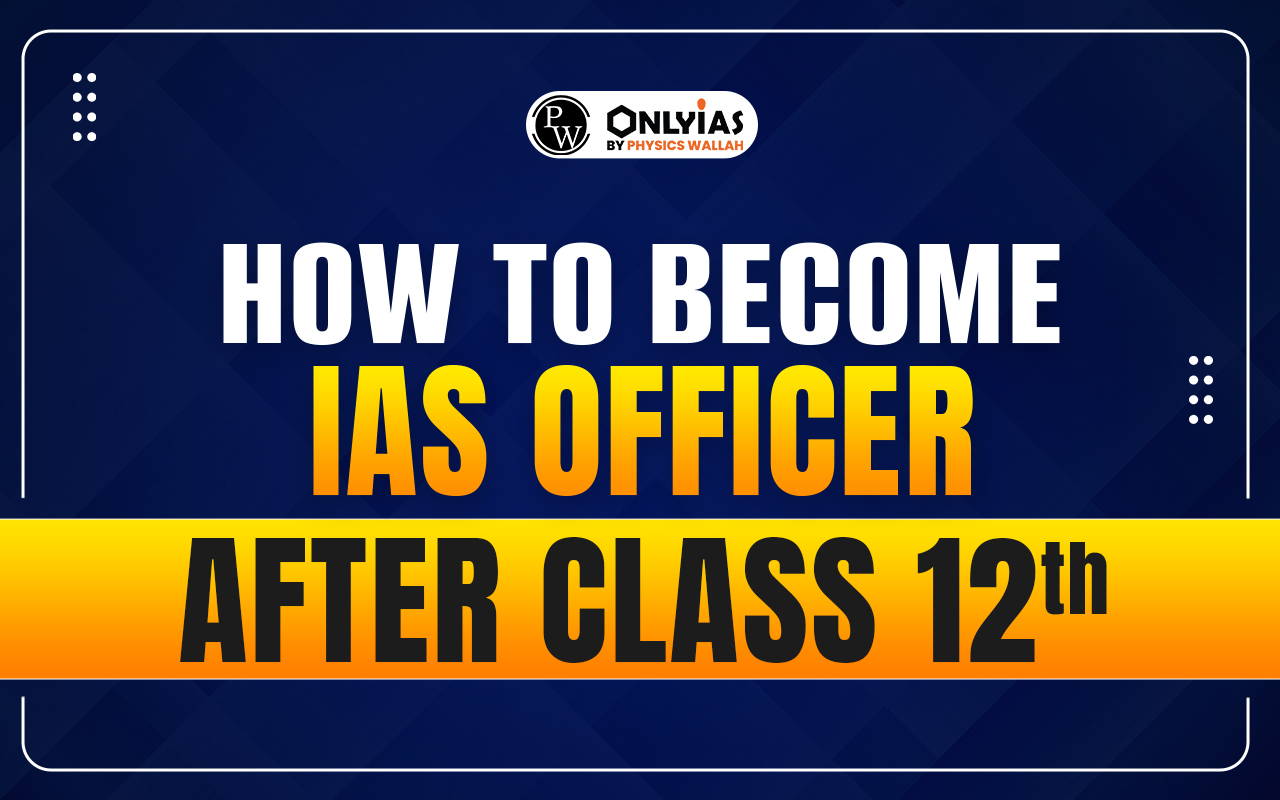Learn guidance on how to become an IAS officer after Class 12th, including eligibility, exam process, preparation strategy, and career roadmap for UPSC aspirants.

How to Become an IAS Officer After Class 12th: Indian Administrative Officer (IAS) is becoming a popular career choice for many youngsters who are currently in school. This is because of the awareness generated about the profession.
The rise in popularity for IAS can also be attributed to pop culture, especially movies and TV shows that have managed to capture imagination across the country.
Youngsters have been positively inspired to consider IAS as a profession. Despite the motivation and encouragement, IAS as a profession is not easy to achieve. In a vastly populous country such as India, an elite profession such as IAS is highly desired and thus the competition is also very high. However, people with the right motivation, guidance and a clear-cut approach can ace the examination and achieve their goal of becoming an IAS officer.
Indian Administrative Service (IAS) is a category of bureaucrats who serve the union and the states in various capacities. They are the cream among the bureaucrats and hence are valued immensely for their contribution to administration.
The IAS is the administrative arm of the All-India Services, which also consists of the Indian Police Service and Indian Forest Service.
The IAS is a part of the permanent bureaucracy of the nation, ensuring continuity in administration regardless of the political party in power.
An IAS officer serves in various authorities such as constitutional bodies, government agencies, auxiliary bodies, government-run companies, state and central regulatory bodies, statutory bodies and other autonomous bodies. IAS officers can also represent the country at international level in organisations such as the World Bank, the International Monetary Fund, the Asian Infrastructure Investment Bank, the Asian Development Bank, or the United Nations, or its agencies.
IAS officers also head important statutory and constitutional bodies such as Election Commission of India, Comptroller and Auditor General, Reserve Bank of India etc.
The most common way of becoming an IAS officer is by passing the Civil Services Examination conducted by the Union Public Service Commission (UPSC). Such officers are called direct recruits.
There are IAS officers recruited from the state civil services, and, in some cases, selected from non-state civil service.
The success rate of IAS is about 0.02%. This is the reason IAS officers are highly coveted and respected in the society. Once a candidate is selected for IAS, he/she will undergo training at the Lal Bahadur Shastri National Academy of Administration in Mussoorie, Uttarakhand.
IAS officers are required to provide their cadre preferences beforehand so that they serve their respective states/UTs. IAS officers remains in their allocated cadre or are deputed to the Government of India. Change of cadre is allowed only in exceptional circumstances.
For an individual to become an IAS officer, he/she should have attained the age of 21 years. In addition, they must have an undergraduate degree from a recognised university.
So, immediately after 12th, an individual cannot become an IAS officer. However, candidates in their final year of graduation can appear for the examination.
Aspirants who have passed 12th standard can plan for their future by choosing courses that can help them in their UPSC exam preparation.
If you are a candidate who has passed 12th standard and wants to become an IAS officer, then it is the optimal time to plan your strategy for the future.
The strategy for becoming an IAS officer can be divided into multiple methods, some of which are as follows:

The examination for selecting IAS officers is considered to be one of the toughest. It is therefore necessary that a candidate has the right aptitude and approach while attempting the examination.
Preparing early, say immediately after 12th standard, can be a good strategy. But for that to actually give results, one has to plan meticulously. There have been instances where proper planning has helped candidates to qualify the examination and become IAS Officers. Hard work has to be prioritised. There is no alternate way.
| Must Read | |
| NCERT Notes For UPSC | UPSC Daily Current Affairs |
| UPSC Blogs | UPSC Daily Editorials |
| Daily Current Affairs Quiz | Daily Main Answer Writing |
| UPSC Mains Previous Year Papers | UPSC Test Series |
Indian Administrative Service (IAS) is a category of bureaucrats who serve the union and the states in various capacities.
No. The minimum age requirement is 21 years in addition to an educational qualification of under graduation. However, candidates can start preparation immediately after 12th standard.
It depends on the attempt year as well as preparation level. If you're a candidate looking for a long-term approach, you need not study for 12 Hours daily.
Not necessary. Humanities stream helps better understand the core subjects of IAS examination. However, students from non-humanities backgrounds have also performed equally well.
Not compulsory. If candidates already possess the core knowledge they can join value-addition courses instead of foundational courses. PW OnlyIAS is one such institute that offers foundational as well as specialised courses.
Test series are absolutely necessary to gauge the level of preparation. It also offers a simulation before the actual examination.
<div class="new-fform">
</div>